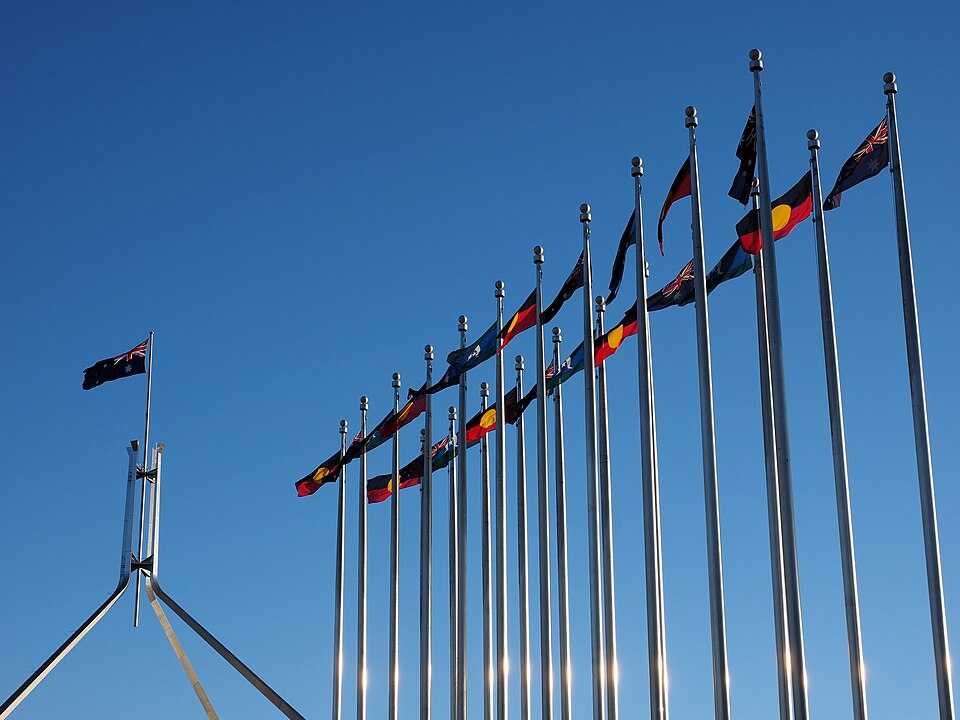If Sam Roggeveen’s Echidna Strategy offered a vision for Australia’s defence posture—careful, defensive, and prepared—it may be time to imagine an Emu Strategy for its diplomacy. The emu, after all, is a national symbol that never takes a step back.
Canberra’s decision to recognise the State of Palestine at the United Nations next month is such a stride: a deliberate move that aligns Australia with prevailing sentiment across much of Southeast Asia, particularly Indonesia, while signalling that its foreign policy can advance independently of its traditional allies.
In Indonesia, Palestine is more than a foreign policy talking point. It is a deeply embedded cause with historical, religious and political resonance. Public opinion consistently supports the Palestinian struggle, and successive governments have maintained vocal diplomatic backing. By recognising Palestine, Australia narrows a long-standing perceptual gap with Jakarta, enhancing its soft power and credibility in the eyes of policymakers and the public alike. In a region where trust capital often underpins strategic cooperation, this step could serve as a diplomatic multiplier, enabling the path to deeper collaboration in security, trade and education.
History shows how powerfully the Palestinian issue resonates in Indonesia. When Australia considered relocating its embassy in Israel from Tel Aviv to Jerusalem in 2018, the mere suggestion triggered strong concern in Jakarta and threatened to delay a A$16 billion trade deal. As the world’s largest Muslim-majority nation, Indonesia viewed the proposal as deeply provocative—not just as a symbolic affront to public sentiment, but as a material risk to bilateral cooperation. That episode underlined the potency of Palestinian solidarity in Indonesia’s domestic and foreign policy discourse.
Seen in this light, Canberra’s recognition of Palestine is not a peripheral gesture. It taps into core diplomatic values held by Indonesia, reinforcing trust and alignment in a region where emotional and moral stakes run high. It also demonstrates consistency in Australia’s commitment to strategic equilibrium in the Indo-Pacific and to upholding a rules-based order—showing that as a middle power, it can take principled positions that resonate beyond its traditional alliances.
However, recognition must be more than symbolic. Without concrete measures to hold Israel accountable for breaches of international and humanitarian law—such as arms export restrictions, diplomatic censure, or targeted sanctions—Australia risks appearing performative rather than principled. The rules-based order is only credible if applied consistently, regardless of the violator’s identity or influence. Canberra’s moral stride toward a two-state solution must be matched by actions that reinforce the integrity of international norms.
Such a position will not be cost-free. Any censure against Israel would likely provoke pushback from some of Australia’s closest security partners, especially the United States. But this is precisely where the value of an Emu Strategy lies: the willingness to take steady, forward steps on matters of principle, even under external pressure. For a middle power, credibility is built as much on the consistency of one’s actions as on the content of one’s commitments.
Moreover, this approach could deliver strategic dividends well beyond the Middle East. In Southeast Asia, moral leadership can unlock cooperation on hard security issues. Demonstrating that Australia’s commitment to international law is not selective would strengthen its standing in ASEAN, mitigate perceptions of double standards, and create goodwill that could spill over into areas such as maritime security, counterterrorism and climate cooperation.
The recognition of Palestine also offers Australia an opportunity to reinforce its position as a connector between the developed and developing worlds. In much of the Global South, the Palestinian cause remains a litmus test for genuine commitment to justice and self-determination. Aligning with this sentiment does not undermine Australia’s relationships with Western partners; instead, it complements them by showing that Canberra can navigate multiple diplomatic theatres without being locked into one bloc’s worldview.
For Australia to remain the “emu” in its diplomacy, it must keep striding forward—turning recognition into tangible action, defending international law without double standards, and embedding these values in its regional partnerships. Doing so would not only advance a just peace in the Middle East but also cement Australia’s standing as a principled and trusted middle power in the Indo-Pacific.
The emu’s stride is deliberate, steady and irreversible. In recognising Palestine, Australia has taken its first steps down a path that could redefine its regional influence. The challenge now is to ensure those steps lead not just to symbolism, but to substantive, lasting gains for peace, justice and the stability of the international order.
Hangga Fathana is lecturer at the Department of International Relations, Universitas Islam Indonesia. His research interests include Australian politics and its relations with the wider Southeast Asia region.
This article is published under a Creative Commons License and may be republished with attribution.




